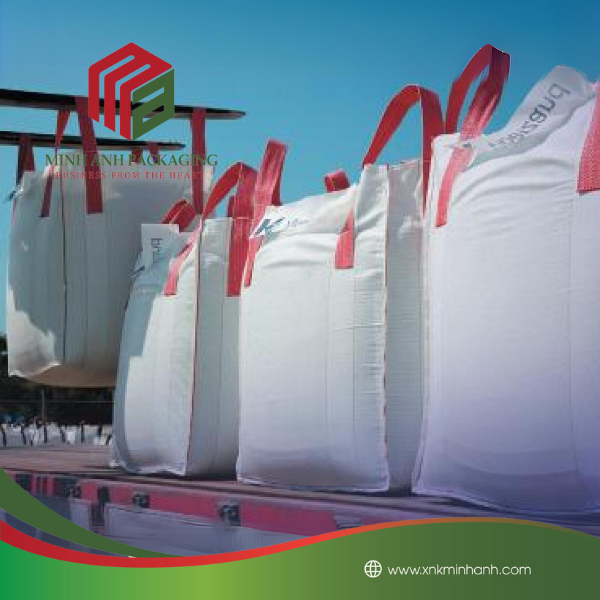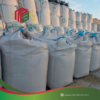FIBC Bags: Ensuring Product Integrity During Transport
The first step in ensuring product integrity during transport is to handle and store the FIBC bags correctly. This includes using appropriate lifting equipment to prevent damage to the bags and their contents. It is important to inspect the bags for any signs of damage or wear before filling them with products. Additionally, storing the bags in a clean, dry, and well-ventilated area can help prevent moisture ingress and contamination.
Flexible Intermediate Bulk Containers (FIBC), commonly known as big bags, are widely used in various industries for transporting and storing a wide range of products. These large, sturdy bags are designed to handle bulk quantities of materials, such as grains, chemicals, and construction materials, with ease and efficiency. However, ensuring the integrity of the products during transport is crucial to maintain quality and safety standards.

One of the key challenges in transporting goods in FIBC bags is the risk of product contamination, moisture ingress, and physical damage. To address these challenges, it is essential to implement proper handling, storage, and transportation practices to safeguard the integrity of the products.
The first step in ensuring product integrity during transport is to handle and store the FIBC bags correctly. This includes using appropriate lifting equipment to prevent damage to the bags and their contents. It is important to inspect the bags for any signs of damage or wear before filling them with products. Additionally, storing the bags in a clean, dry, and well-ventilated area can help prevent moisture ingress and contamination.
Selecting the right type of FIBC bag for specific products is crucial in maintaining product integrity during transport. Different products have different requirements, and using the appropriate FIBC design can help prevent issues such as product settling, leakage, or contamination. For example, food-grade FIBC bags are designed to meet strict hygiene and safety standards for transporting food products, while conductive FIBC bags are used for transporting flammable materials to prevent static electricity buildup.

Quality assurance measures, such as regular quality inspections and testing of FIBC bags, are essential to ensure their integrity during transport. This includes checking for any defects in the stitching, fabric, or lifting loops that could compromise the strength and safety of the bags. Additionally, conducting tests for factors such as tensile strength, tear resistance, and UV stability can help verify the reliability of the FIBC bags for specific transport conditions.
Securing FIBC bags properly during transport is critical to prevent shifting or toppling, which can lead to product damage or spillage. Using suitable restraining equipment, such as straps or pallets, can help stabilize the bags and minimize the risk of damage during transit. Additionally, ensuring proper loading and distribution of weight within the bags can help maintain their structural integrity and prevent overloading.
Environmental factors such as temperature fluctuations, exposure to sunlight, and humidity levels can impact the integrity of products during transport in FIBC bags. It is important to consider these factors and implement appropriate measures to protect the products. For example, using insulated FIBC bags can help regulate temperature-sensitive products during transport, while UV-stabilized bags can prevent degradation due to prolonged exposure to sunlight.

Proper training of personnel involved in handling and transporting FIBC bags is crucial to ensure compliance with safety regulations and best practices. This includes educating employees about proper lifting techniques, storage guidelines, and emergency procedures in case of spills or accidents. Compliance with industry standards and regulations, such as those set by the International Safe Transit Association (ISTA) or the Flexible Intermediate Bulk Container Association (FIBCA), is essential to maintain product integrity and safety during transport.
Maintaining product integrity during transport in FIBC bags is a critical aspect of ensuring product quality and safety. By implementing proper handling, storage, quality assurance measures, and compliance with industry standards, companies can minimize the risk of product contamination, damage, or loss during transit. Choosing the right type of FIBC design for specific products and considering environmental factors can further enhance the integrity of products during transport. Ultimately, prioritizing product integrity in FIBC bag transportation not only protects the products but also upholds brand reputation and customer satisfaction.
Hãy là người đầu tiên nhận xét “FIBC Bags: Ensuring Product Integrity During Transport” Hủy
Sản phẩm tương tự
Tin Tức Bao Bì
Tin Tức Bao Bì
Tin Tức Bao Bì
Tin Tức Bao Bì
Tin Tức Bao Bì















Đánh giá
Chưa có đánh giá nào.